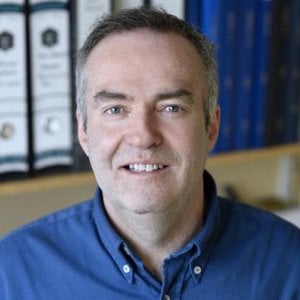David Baker has a BSc in Zoology and has a PhD that focused on the Molecular Biology of the intestinal parasite Giardia lamblia from the University of Hull in 1988. He then moved to the London School of Hygiene & Tropical Medicine to work on the malaria parasite Plasmodium falciparum. David became a Professor of Malaria Parasite Biology at the School in 2015. He holds current Wellcome Trust Investigator and Innovator Awards.
Affiliations
Centres
Teaching
Each year David lectures on the Advanced Practical Training in Molecular Biology Masters module (3158). He is the Deputy Chair of the Exam Board and a Tutor for the Distance Learning MSc, Postgraduate Diploma & Certificate in Infectious Diseases, and Tutor for the MSc in Medical Microbiology.
Research
David Baker's research team use molecular and biochemical approaches to deliver an understanding of the role of cyclic nucleotide signalling in controlling the malaria parasite life cycle. He also partners chemists at Salvensis and the Medicines for Malaria Venture (MMV) to develop small molecule inhibitors that target cyclic nucleotide signalling with the longer term aim of developing a new antimalarial drug.
